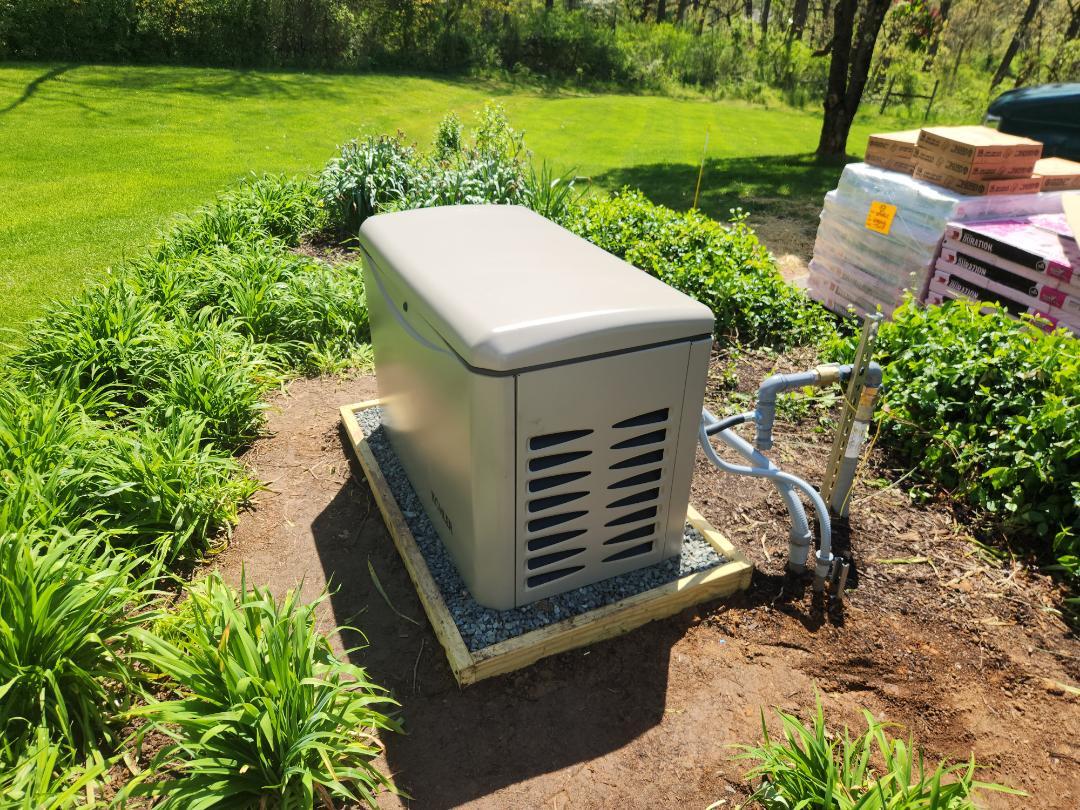BOLD Generators Blog

5 Key Factors to Determine the Right Size Generator for Your New Jersey Home
Picture this: a sudden Nor'easter rolls through New Jersey, the power lines sway, and lights flicker out across your neighborhood. But not at your house. Why? Because you’ve invested in a standby generator that’s perfectly suited to your home’s needs. In this blog post, we’ll guide you through the essential factors to consider when choosing the right size generator for your home, ensuring you're prepared no matter what Mother Nature throws your way.
1. Assess Your Power Needs
Identify Essential Appliances: First things first, decide which appliances are non-negotiable during an outage. For most in the Garden State, heating systems, refrigerators, and sump pumps top the list. Don’t forget your router to stay connected, and maybe the coffee maker—to keep the comfort of a warm brew in hand during chilly, dark mornings.
Calculate Total Wattage: Every appliance has a wattage rating, usually listed on a label on the back or bottom. Add up these numbers for everything you’ve listed. Here’s a pro tip: Appliances often need more power to start up than to run, so always factor in a little extra for that initial surge.
2. Understand Generator Types and Their Capacities
Types of Generators: Standby generators are ideal for many homes in New Jersey because they offer automatic activation and can power everything from lights to heating systems. Portable generators are less expensive but will require manual setup and operation during a storm—something to consider during inclement weather.
Fuel Types: Natural gas generators are a popular choice in urban and suburban areas due to the convenience of direct fuel lines. Propane and diesel options might be more suitable for rural areas where natural gas isn’t readily available. Weigh the availability and storage requirements of each to find your best match.
3. Consider Your Home’s Size and Layout
Physical Space: The size of your generator is directly influenced by where it can be safely installed. New Jersey homes vary widely in layout and available space, so consider this when choosing your generator size.
Safety Regulations: Local codes and regulations are crucial in the decision-making process. Ensure that your installation complies with New Jersey’s specific safety standards, including placement away from windows and adherence to noise regulations to keep the peace with your neighbors.
4. Factor in Local Weather Conditions
Weather Resilience: Our state’s notorious nor'easters require a generator that can handle heavy snow and freezing temperatures. Opt for a model known for reliability under these conditions to avoid the double trouble of a power outage and a malfunctioning generator.
Cold Weather Performance: Some generators include features like cold weather kits, which help them start better in lower temperatures. Considering our brisk New Jersey winters, this could be a game-changer for your comfort and safety.
5. Budget and Long-Term Costs
Initial Costs vs. Operational Costs: While the upfront cost of a generator is an important factor, don’t overlook the ongoing expenses. Fuel efficiency and maintenance can vary widely between models and will impact the overall cost-effectiveness of your investment.
Investment Value: Beyond just keeping the lights on, a good generator can increase your home’s value and may reduce insurance rates by mitigating risk. It’s not just about buying a generator; it’s about investing in your home’s future security.
Conclusion
Choosing the right size generator is a balancing act between power needs, budget, and the specifics of your local area. With the considerations outlined above, you’re well on your way to making an informed decision that will keep your home powered through whatever challenges come your way.
Ready to take the next step? Contact us for a consultation or visit our website to explore our range of home generators designed with New Jersey homeowners in mind. Let’s ensure your home is prepared, come rain, snow, or high winds!
With a professional yet friendly tone, this post walks homeowners through the practical steps of choosing a generator while considering local conditions unique to New Jersey, fostering a sense of preparedness and community resilience.
Key Takeaways
Assess Essential Needs: Start by identifying the critical appliances and systems that you need to keep running during a power outage. Calculate the total wattage required to ensure you choose a generator that can handle the load.
Choose the Right Type and Fuel: Decide between a portable and a standby generator based on your specific needs and preferences. Consider the fuel type that is most accessible and cost-effective in your area, be it natural gas, propane, or diesel.
Installation Space and Safety Compliance: Make sure you have adequate space for installing the generator and that it complies with local New Jersey safety and zoning laws to avoid potential fines and ensure community safety.
Weather Considerations: Opt for a generator that performs reliably in New Jersey’s severe weather, including cold-weather kits for winter storms, ensuring functionality when you need it most.
Cost-Effectiveness: Factor in both the initial investment and ongoing operational costs. A generator not only provides power during outages but can also increase your home's value and potentially lower insurance rates.
FAQ Section
Q1: How do I know what size generator I need for my home? A1: Calculate the total wattage of the essential appliances and systems you need to power during an outage. Add up the wattage ratings from each appliance’s label, and consider a generator that can handle this load plus a little extra for start-up surges.
Q2: Are portable generators a good option for New Jersey homes? A2: Portable generators can be a cost-effective solution for homes that experience less frequent or shorter outages. They require manual setup and operation, which might not be ideal during severe weather conditions. Standby generators offer automatic operation and are better suited for longer or more frequent outages typical in New Jersey.
Q3: What type of fuel is best for home generators in New Jersey? A3: Natural gas is often preferred in areas where it is readily available, as it doesn't require storage and is generally more cost-effective. However, propane or diesel might be better options in rural areas where natural gas lines are not available. Each fuel type has its pros and cons, including availability, storage, cost, and impact on the environment.
Q4: What are some key safety tips when installing a home generator? A4: Ensure the generator is installed away from windows and doors to prevent exhaust fumes from entering the home. Adhere to local codes for proper placement and installation, and consider hiring a professional to ensure that the installation is safe and compliant with all local regulations.
Q5: How often should I perform maintenance on my generator? A5: Regular maintenance is crucial for the reliability of your generator. Check the manufacturer’s guidelines, but generally, it’s recommended to perform a thorough check at least once a year. This includes checking oil and coolant levels, testing battery function, and ensuring that all connections are secure. Additionally, run the generator every few months to ensure it’s ready for use when needed.
When it comes to ensuring your New Jersey home is equipped with the right standby generator, choosing a trusted provider is as crucial as selecting the right generator itself. BOLD Electric has been a reliable partner for homeowners across the Garden State since 2005, specializing in both the installation and maintenance of home generators. With a track record of stellar customer service, BOLD Electric understands the unique needs of New Jersey residents. Whether you're just starting to explore your generator options or need expert advice on maintenance, BOLD Electric is here to provide professional and friendly assistance. Contact BOLD Electric today to ensure that your home is prepared for anything, with the right generator installed by the right people.

© 2024 BOLD Electric LLC - Providing emergency power solutions, electrical installs/repairs, and maintenance throughout all of New Jersey.
848-229-9433





